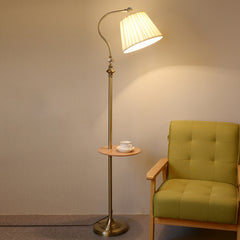Outdoor flood lights are one of the best ways to improve security, safety, and visibility around your property. But before you install them, you may be asking: do you need planning permission for flood lights?
For most homeowners, the answer is no—standard residential floodlights rarely require formal approval. However, in certain cases such as commercial installations, heritage zones, or high-powered lighting projects, you may need to check with your local council.
When Planning Permission Isn’t Required?
In everyday situations, flood lights are considered a minor home improvement. You typically won’t need planning permission if your lights are:
-
Installed for domestic use (gardens, driveways, garages)
-
Of reasonable brightness (1,500–3,000 lumens for home security is usually enough)
-
Positioned to avoid shining into neighbours’ windows
-
Mounted at a standard wall or roof height rather than tall poles
In other words, most residential LED flood lights can be installed freely as long as they are used responsibly.
When Planning Permission May Be Needed?
There are situations where flood lighting may require council approval:
-
Commercial or Industrial Premises – Large-scale flood lights for warehouses, sports facilities, or car parks often need approval due to their brightness and operating hours.
-
Heritage or Conservation Areas – Properties in heritage zones may have restrictions on external modifications, including lighting.
-
Light Pollution and Glare Issues – If your floodlight creates excessive glare, impacts neighbouring properties, or contributes to light pollution, you may be asked to adjust or apply for approval.
-
High-Mast Installations – Tall floodlight poles or stadium lighting almost always require permission because of their potential visual and environmental impact.
Why Councils Care About Outdoor Lighting?
Flood lights are essential for safety and security, but poorly designed installations can also create problems. Councils regulate outdoor lighting not to limit convenience, but to reduce disruptions that affect the community. A badly placed floodlight can shine into bedrooms, spill onto public roads, or contribute to unnecessary light pollution.
Key issues councils try to prevent include:
-
Light pollution that affects the night sky and wildlife
-
Neighbour complaints from glare or disturbance
-
Road hazards if beams spill into public streets
How to Stay Compliant Without the Paperwork?
The good news is that most homeowners can avoid planning permission concerns simply by following sensible practices. By choosing the right brightness, positioning lights carefully, and using energy-saving features, you can keep your property secure while staying neighbour-friendly and compliant with local guidelines.
A few practical tips include:
-
Select the right brightness – 1,500–3,000 lumens is usually enough for homes.
-
Install motion sensors – lights only turn on when needed, saving energy and reducing disturbance.
-
Angle lights downward – focus on your property, not the sky or neighbouring houses.
-
Choose waterproof models – IP65-rated LED flood lights last longer in outdoor conditions.
-
Opt for solar-powered designs – no wiring, no extra costs, and generally exempt from council scrutiny.

Solar Flood Lights: A Hassle-Free Option
If you want reliable outdoor lighting without the complexity of wiring or the risk of complaints, solar flood lights are an excellent choice. These lights combine the durability of waterproof LED designs with the efficiency of solar power. They’re easy to install, cost nothing to run, and often include motion sensors for extra security.
Check out Outway’s solar floodlight collection for models built specifically for Australian conditions.
Final Thoughts
So, do you need planning permission for flood lights? For most households, the answer is no—you can install LED or solar flood lights without approval as long as they don’t cause nuisance or excessive glare.
For larger commercial projects, heritage properties, or installations involving very bright or tall-mounted floodlights, it’s best to confirm with your local council before proceeding.
At Outway, our solar flood lights offer a simple, effective way to illuminate your property—without wiring, high energy bills, or complicated planning requirements.



